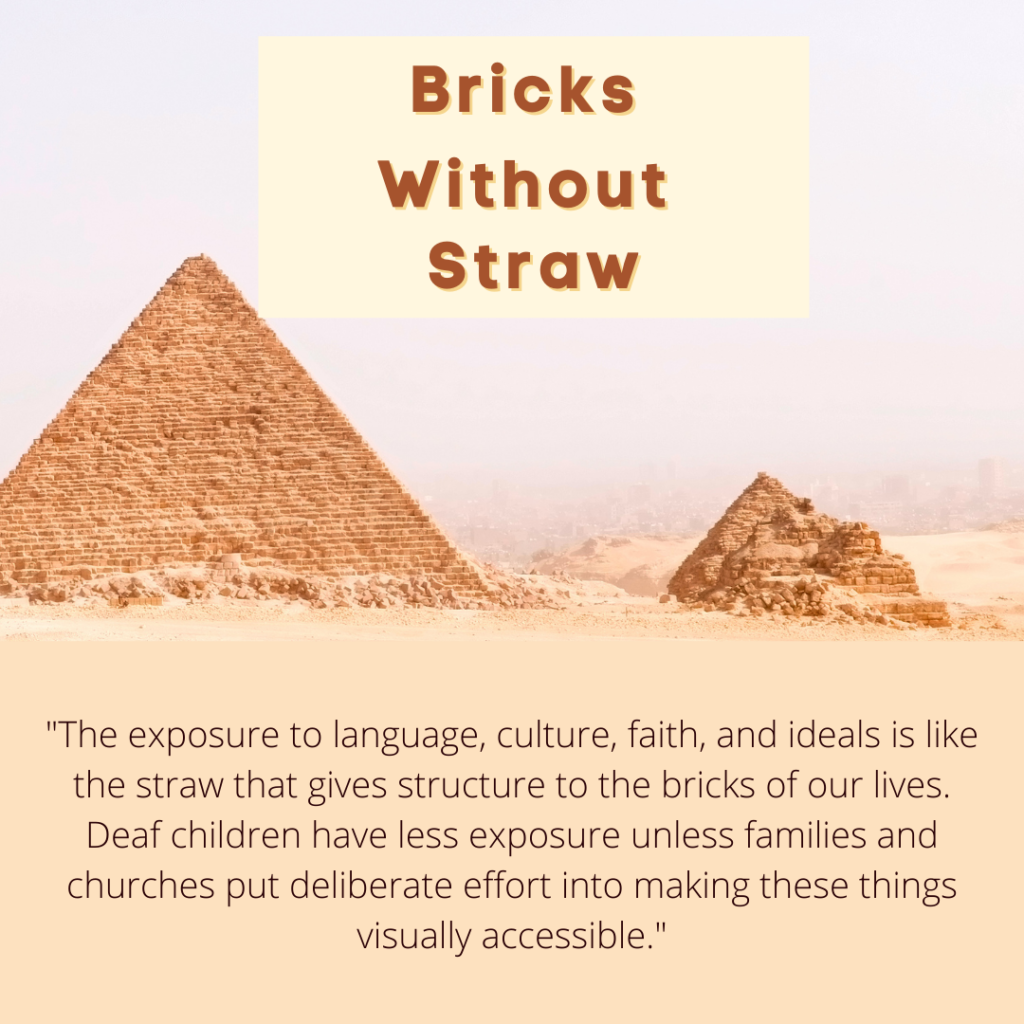In Exodus 5, the Pharaoh of Egypt commanded that the Israelite slaves find their own straw to make their quota of bricks. We see this demand for double work and we say “boo!” to Pharaoh, and well we should. Never mind the slavery that the Israelites had been born into for many generations, they were accustomed to that. It was almost as natural as children born into households “just like them.”
One of the core designs in infant creatures, whether human, wolf, or cat, is the ability to observe and incorporate the language and culture they’re raised in. Things like what to eat, how to groom, and the identification and response to danger come naturally to animals, as long as they remain with their parents, or at least their pack. Human babies take a little longer to learn about grooming, but they’re observing and incorporating every bit of language and culture they can sample. It’s natural. Unless they’re born into a household “not like them.”
How is “not like them” possible? We inherit our parents’ coloring, facial features, and even their odds of having addictions. We seem to inherit their language as well, tending to talk like them. Not so. Language and culture are learned based on exposure to others, whether our families or broadening communities. This is how an infant adopted from a foreign orphanage can grow up speaking American English fluently and have no idea how to communicate with their birth parents in other countries. It’s a matter of exposure.
The exposure to language, culture, faith, and ideals is like the straw that gives structure to the bricks of our lives. Deaf children don’t get as much exposure in our audio-based world, unless families and churches make deliberate investments in making these things visible. Yes, there’s extra work in creating visual resources for such children, but think of the message they’re getting when we don’t.
This is why a young deaf person, in most cases, will gravitate toward signing peers once they “find their tribe.” Finally, they can get on with making bricks without the double work of finding their own straw.

